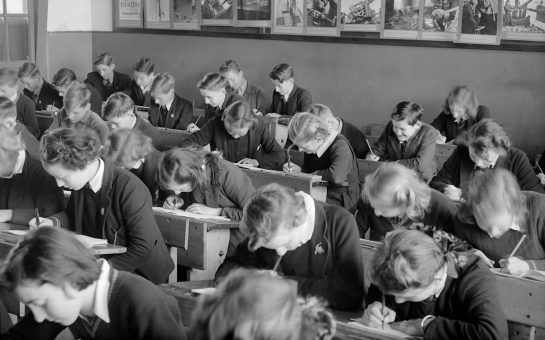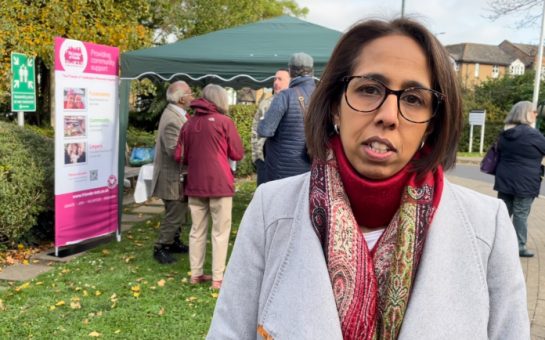Even the Duke and Duchess of Cambridge are fans of the series.

The Warner Bros Studios were perhaps an unlikely place for a Royal Visit, but in my eyes it’s not surprising that the Duke and Duchess of Cambridge wanted to visit the place where Harry Potter was filmed.
‘They’re for children.’ ‘Why would you read about wizards at a school?’ ‘They’re badly written.’ A few responses I receive when professing my love of Harry Potter make me want to go on an Avada Kedavra spree, as in the main, it is recognised that they are brilliant novels.
The Harry Potter books are not solely for children. Art is rich with examples of books, films and cartoons (Simpsons, anyone?) that have a duality of purpose, appealing on wholly different levels to adults and children alike.
Themes of love, death, Nazism and Stalinism pervade the books, which have dark tones tempered by simple language which recognises that yes – children will read them too. From a marketing perspective, J K Rowling could only do so much.
Voldemort was a representation of Hitler, his Death Eaters Nazis. Their obsession with blood purity, eugenics and their sociopathic tendencies are anything but child-like. ‘Dinner, Nagini’ is one of the most chilling lines you could ever read in a book. His ethnic cleansing beliefs still exists today, if you look to Sudan and elsewhere.
“Pure-blood’, ‘half-blood’ and ‘Muggle-born’ compared to some of the real charts the Nazis used to show what constituted ‘Aryan’ or ‘Jewish’ blood,” said Rowling.
“I saw one in the Holocaust Museum in Washington when I had already devised the ‘pure-blood’, ‘half-blood’ and ‘Muggle-born’ definitions, and was chilled to see that the Nazis used precisely the same warped logic as the Death Eaters. A single Jewish grandparent ‘polluted’ the blood, according to their propaganda.”
Grindelwald and Dumbledore, with their early quest to subjugate Muggles for the ‘greater good’ touched upon Stalinism and its belief that it had a moral argument in its favour to propagate Communism at any cost.
Making Dumbledore gay, but only incidentally, was a push in the right direction for literature that is read by many people. Gay characters are often consigned to special- interest books. Rowling has helped make gay people more mainstream and normalises us further-even if he was a wizard.
The characters grow throughout the series, which is a unique quality in a ‘children’s’ book, or any series. Rowling had said she found it odd reading the Enid Blyton books as a child, the characters stuck in time. She wanted to make sure her characters grew up, which is why the school setting was a suitable one. Its school setting also enabled action to take place at night in realistic way.
Characters such as Cornelius Fudge and Umbridge aptly represented bureaucracy and state interference, capturing what many people felt was going on politically – wars we didn’t want, changes to the curriculum uncalled for. Umbridge in particular showed how the concept of evil isn’t binary. People can believe they are doing good when they are in fact perpetuating evil, blindly following the rules because they are the rules. “It was just my job” is a refrain to be heard in the transcripts of Nuremburg trials (it is no coincidence one of the wizarding jails is called Nurmengard.)
The complexity of the plot is anything but childish. The vastness of the world created will have history put it with the great of literature. Tolkien, Shakespeare, Tolstoy – their rich plotting helped create worlds in their entirety. They are men, and so of course get the praise for being wordy, where Rowling gets opprobrium. She had to initialise her name because publishers thought ‘Joanne’ would put boys off reading her.
There was no swearing other than ‘bitch’, no sex – a kiss with Ginny was a metaphorical euphemism – and no drugs, unless you count Potions. Having to appeal to the widest possible market tempered Rowling’s ability to get into the dirt, and this is what puts adults off reading them. Perhaps they should pay more attention to allegory, but maybe that is too much to expect in an age where ’50 Shades of Grey’ – essentially porn (and so what?) – does so well.
The writer Stephen King perhaps sums up best: “Harry Potter is about confronting fears, finding inner strength and doing what is right in the face of adversity. Twilight is about how important it is to have a boyfriend.”
Photo courtesy of eviltig, with thanks.
Follow us @SW_Londoner




